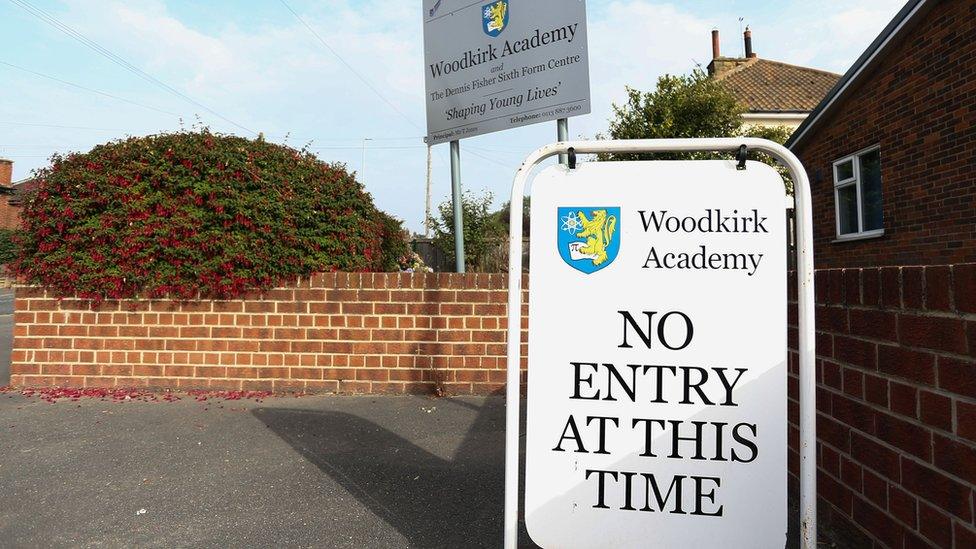Hundreds of schools in England checked for Raac, say education chiefs
- Published
- comments
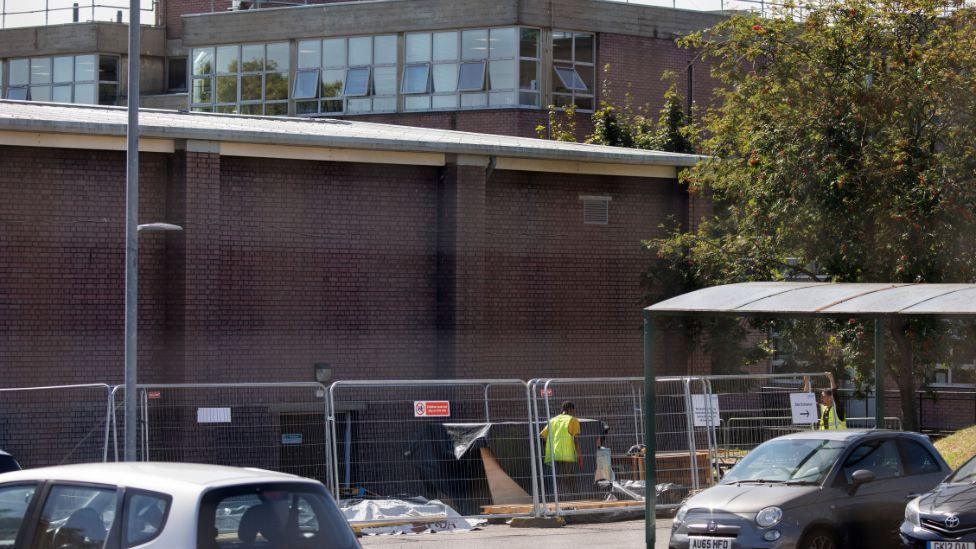
Work is being done to address confirmed Raac as surveys are carried out at schools across the country
"Several hundred" surveys are now being carried out every week to find schools containing collapse-prone concrete in England, according to the Department for Education (DfE).
Officials told the Public Accounts Committee (PAC) that 98% of schools have returned questionnaires about the presence of the material.
"A few hundred" are still outstanding.
It comes after ministers set a deadline of last Friday for school leaders and responsible bodies to respond.
Used in the construction of schools from the 1950s to the mid-1990s, reinforced autoclaved aerated concrete (Raac) can become "crumbly" over time and prone to collapse.
The DfE's permanent secretary Susan Acland-Hood and chief operating officer Jane Cunliffe appeared before the committee of MPs on Monday afternoon.
Dame Meg Hillier, who chairs the PAC, said it was "disappointing" they could not provide MPs with more specific figures.
The civil servants confirmed that nine of the 156 schools initially announced as having Raac were actually found not to contain the material.
But they repeatedly resisted questions about how many schools were waiting for a survey, as Dame Meg asked whether the number was in the "tens" or "hundreds".
Ms Cunliffe said: "It is very fast-moving, we are doing tens of surveys every day."
The DfE released its official list of 147 schools containing Raac last week.
Ms Acland-Hood said the list would be updated every fortnight.
The officials said more than 600 schools had now been surveyed for Raac, and that the department had increased its number of contracted surveyors from three to eight.
They said they hoped to have identified the "majority" of affected schools within "a few weeks".
Ms Cunliffe told MPs that in two-thirds of all the surveys conducted, Raac had not been found.
The officials said the focus of the surveys was currently on schools with suspected Raac, but that surveyors would soon look at a random sample of schools reporting no Raac to test for "false negatives".
They declined to provide a figure for the number of pupils affected by the crisis so far, but defended the "co-ordinated" cross-government approach.
A total of 16 local authorities in Scotland have found potentially dangerous concrete in their schools, the Scottish government has confirmed.
Investigations are also continuing in Northern Ireland and in Wales, where two schools were forced to close.
- Published13 February 2024
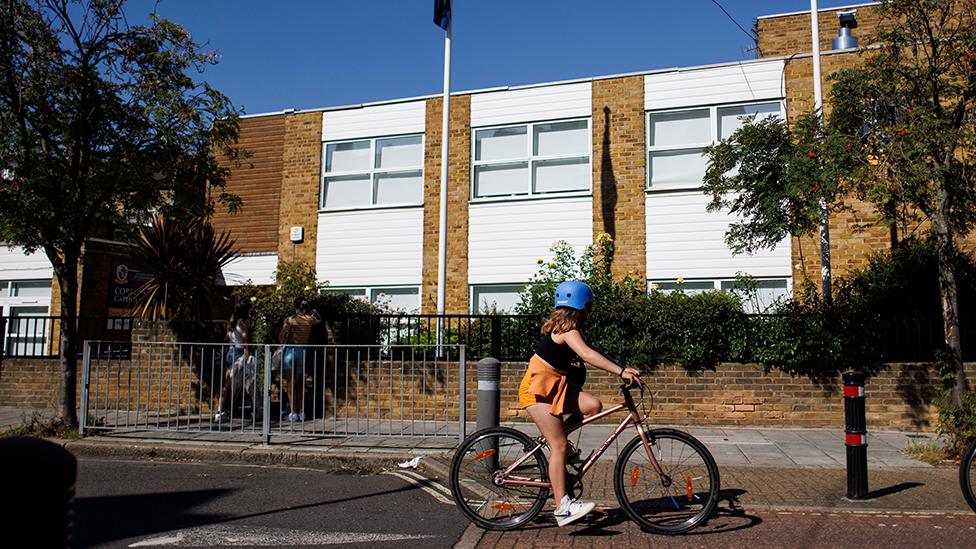
- Published21 September 2023

- Published6 September 2023
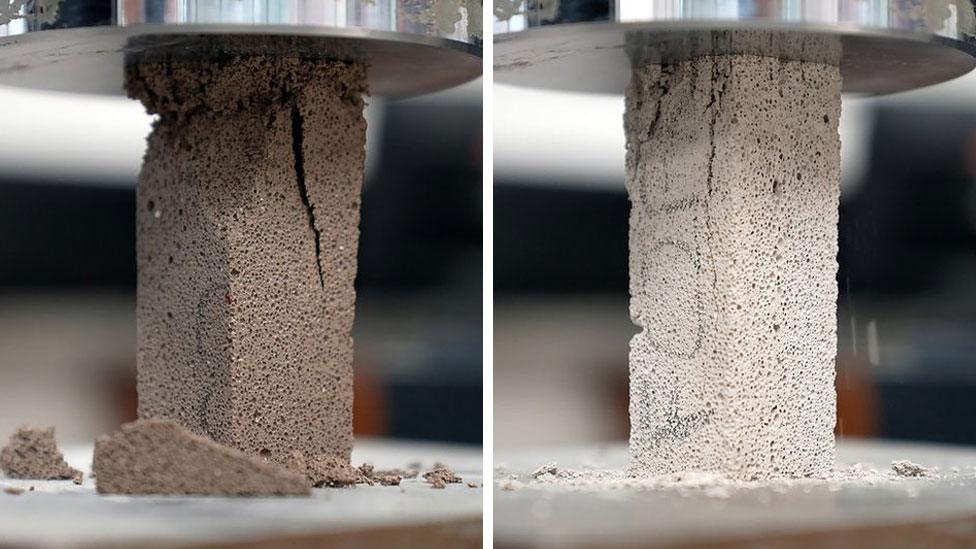
- Published6 September 2023
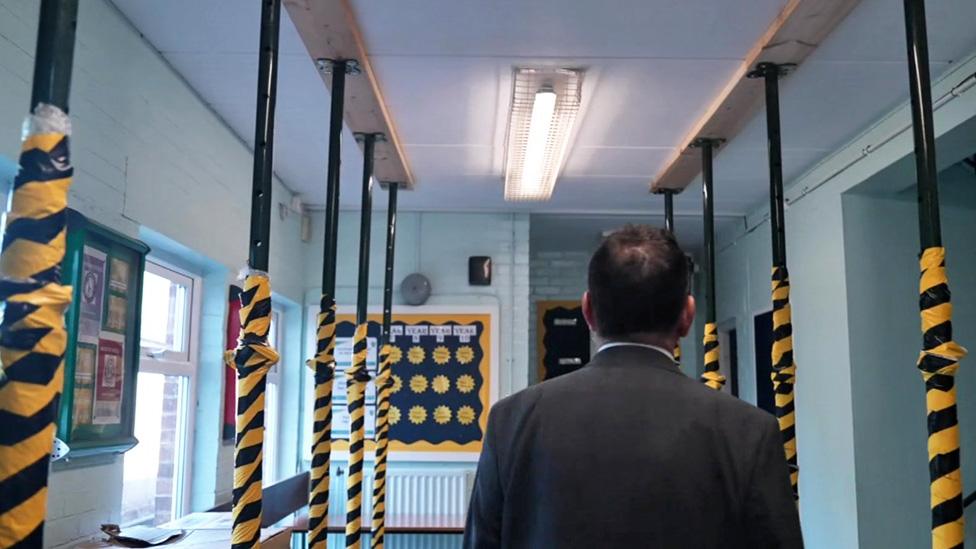
- Published7 September 2023
